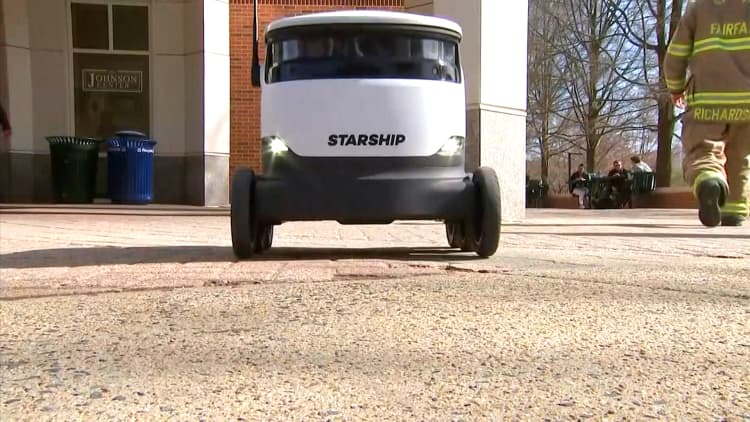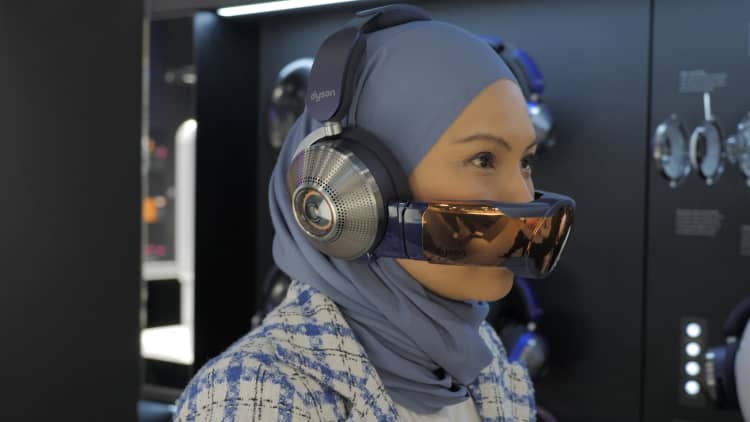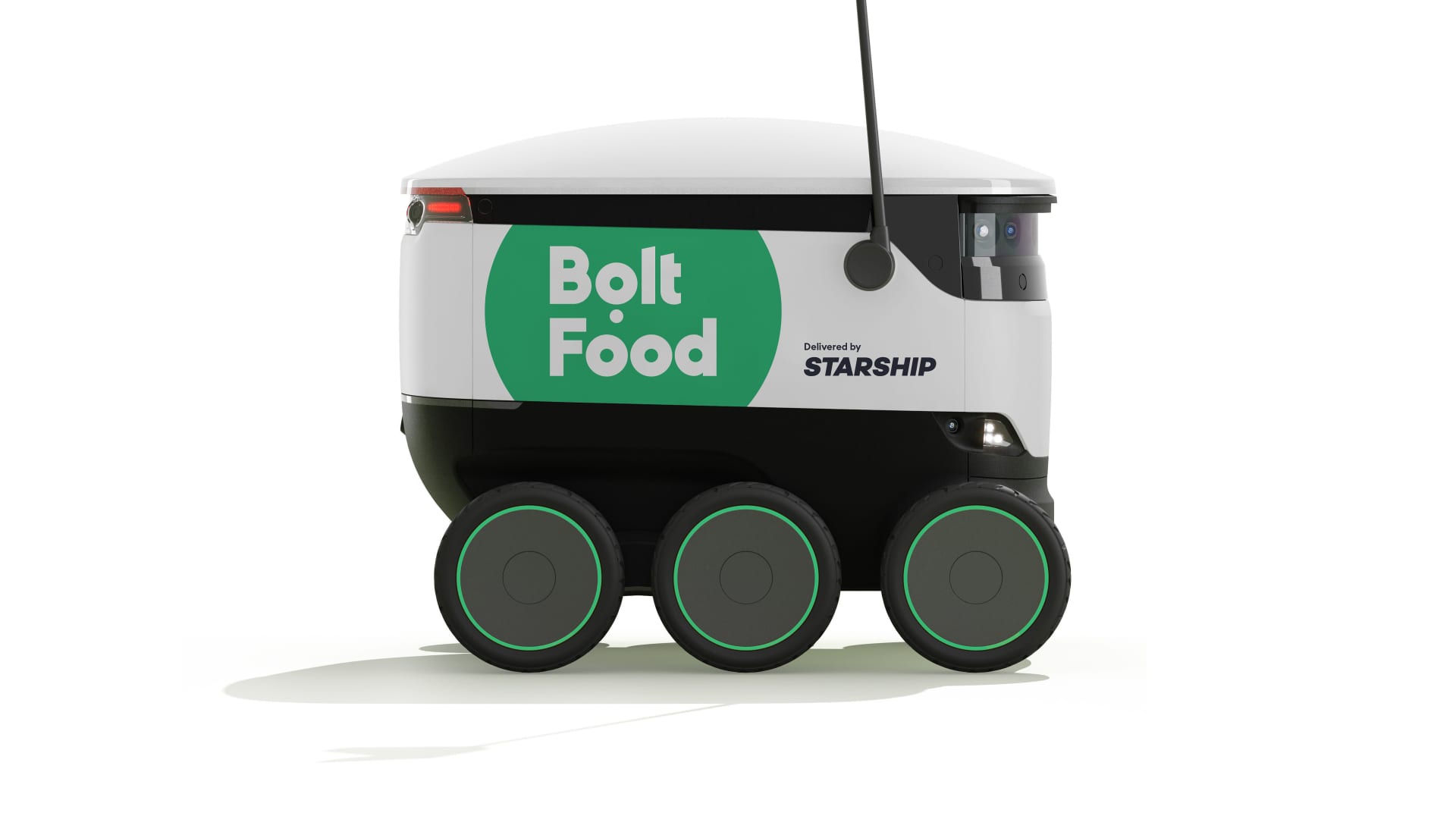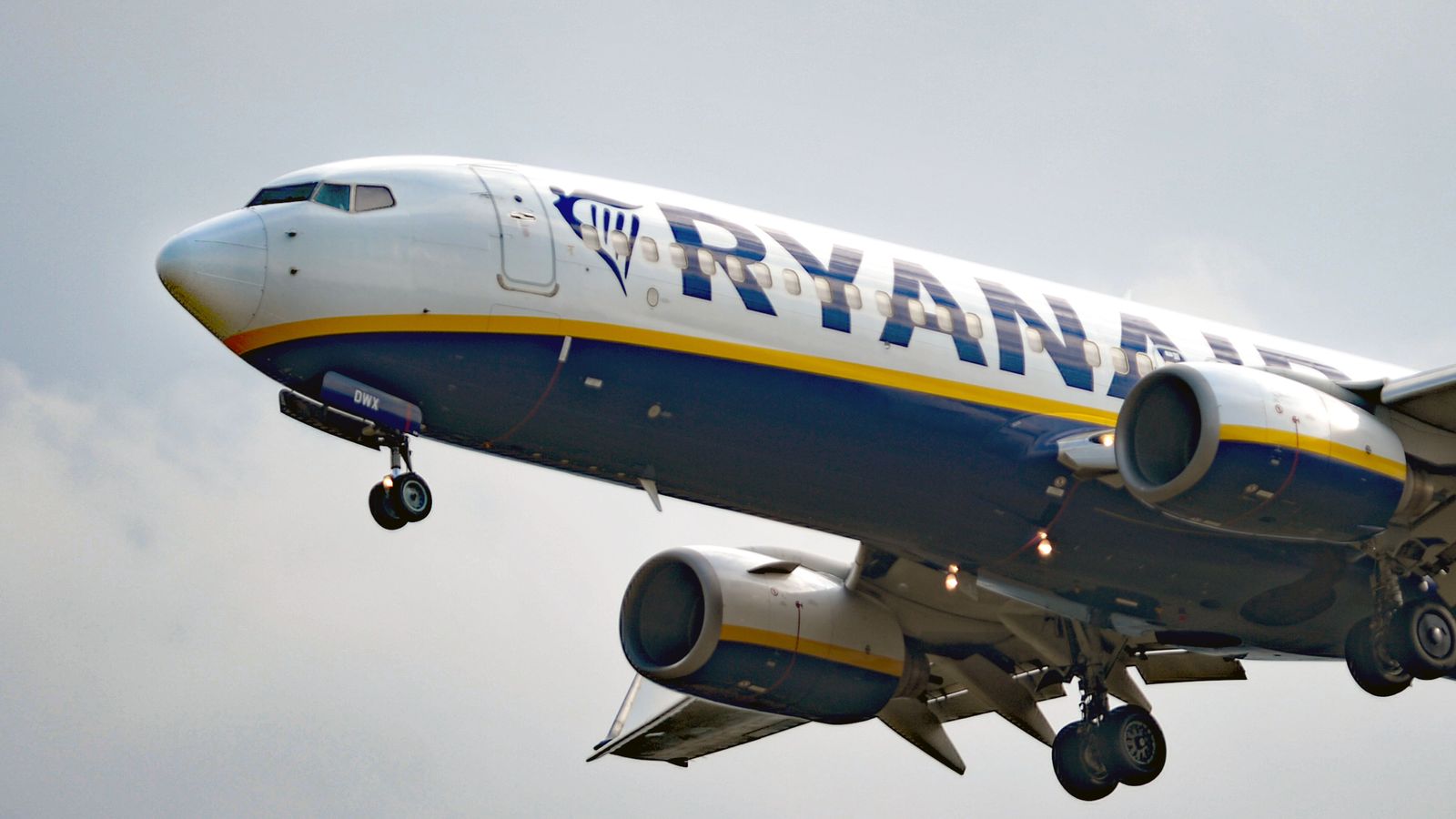
Bolt is set to launch food delivery via robot in partnership with the robotics firm Starship Technologies.
Bolt
Estonian ride-hailing firm Bolt says it will begin delivering food to people’s doors from a fleet of self-driving robots through a partnership with robotics firm Starship Technologies.
The company said it would start offering online food deliveries in its home city of Tallinn later this year in an initial rollout of Starship’s robots, which are roughly the size of a suitcase.
“We are focused on providing well-rounded solutions to help make local transportation as sustainable as possible,” Markus Villig, founder and CEO of Bolt, said in a statement Wednesday.
“Starship offers a smart and much-loved service that has proven itself over the past five years and we’re excited to introduce this service to more people.”
Bolt, one of Europe’s most highly-valued tech companies with a valuation of $8.4 billion, made a name for itself challenging Uber in the U.S. ride-hailing giant’s key international markets, particularly the U.K.
The company has since expanded into several other lines of business, including online food and grocery delivery and e-scooters.
Founded in 2013 and formerly known as Taxify, Bolt has around 100 million customers in 45 countries across Europe, Africa, the Middle East and Latin America.
Bolt has raised over $2 billion in funding to date from investors including Sequoia, World Bank unit IFC, and the European Investment Bank.
How it will work
Just like ordering food online from apps in the typical way, Bolt’s Starship partnership will allow users to get their food delivered from robots at the tap of a button.
Once the robot arrives at your door, you’ll be able to press a button that opens it up and receive your meals or groceries.
Wednesday’s news marks a major milestone in reaching commercial deployment of the technology at scale.
Bolt plans to start deliveries in Tallinn in the coming months and then roll the robots out to further markets at a later point in time.
Starship, headquartered in San Francisco and co-founded by some of the founders of Skype, already operates a fleet of autonomous delivery robots in the U.S.
Stateside, the service is primarily used by college students in partnership with the food delivery firm Grubhub.
The firm has a similar deal in place in the U.K. and other European countries with British grocer Co-op.
Starship, which has raised around $200 million in funding to date, is one of many companies testing the use of robotics for delivering food and other goods.
In Asia, Chinese companies have been early to the trend. Meituan, the major food delivery app, was testing its robots in offices and hotels as early as 2019.
Some attempts to make deliveries using fleets of robots have been hit with setbacks, as widespread takeup of the technology has been limited.
In the U.S., for example, Amazon ended its field tests of Scout, a delivery robot that sent small packages to customers’ homes, in a bid to cut down on costs.
WATCH: How many engineers does it take to make Dyson headphone? We tour its secret labs to find out













